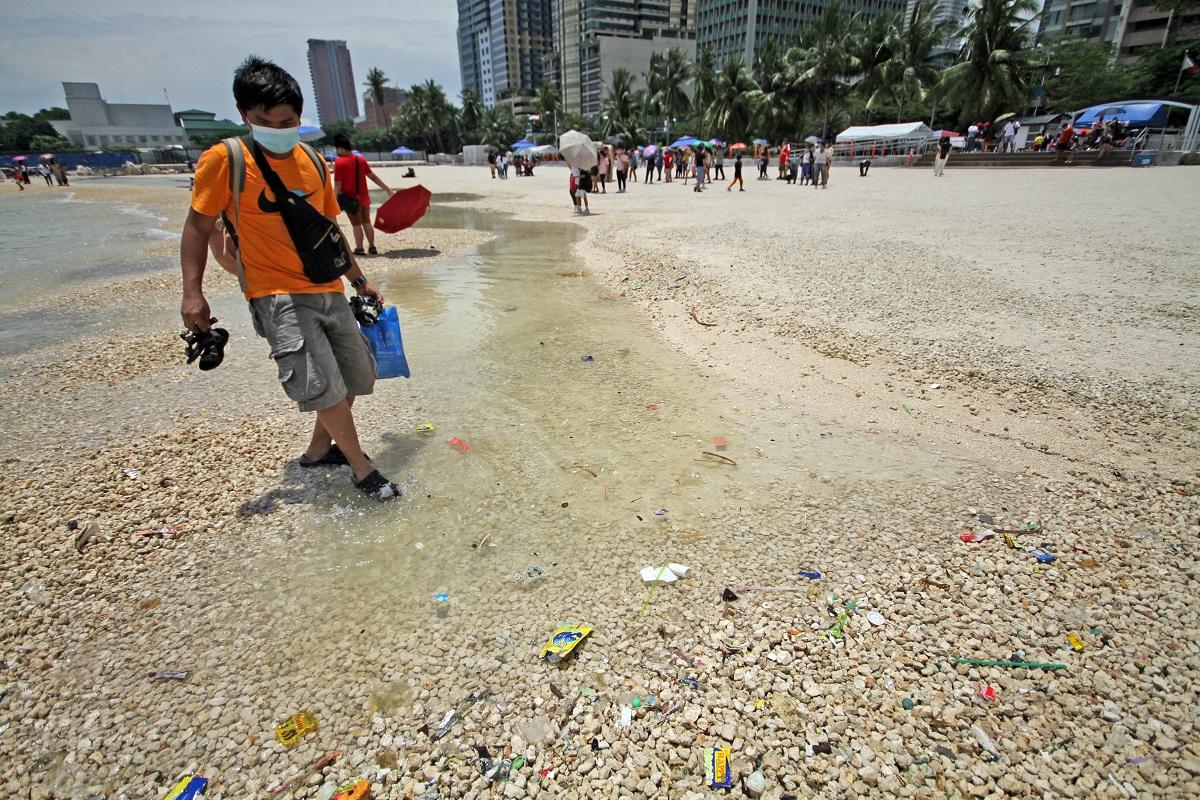Legarda files bill regulating single-use plastics

Senator Loren Legarda has filed a bill regulating the manufacturing, importation and use of single-use products by providing penalties, levies and incentives for industries and consumers.
Called the Single-Use Plastics Regulation and Management Act of 2022, the measure provides an "ambitious yet comprehensive" approach to solving the problem of single-use plastics, Legarda said.
The proposed act will cover the manufacture, importation, use, recycling, and disposal of all single-use plastics used in trade or commerce in business enterprises, as well as by retailers and consumers in the Philippines.
Under the measure, the phase-out of single-use plastics by all business enterprises to consumers will be in full force a year after the effectivity of the bill.
Within the one-year interim period, single-use plastics shall be prohibited in food establishments, markets, and retailers; consumers will be encouraged to use reusable materials as substitute; and single-use plastics that are already manufactured and in circulation in the general will be collected, recycled and properly disposed of by the manufacturers.
For the single-use plastics which cannot be avoided, business enterprises must ensure that these are recycled following the guidelines provided in the bill.
For each single-use plastic already manufactured and in circulation at the time, retailers will impose a minimum of P5 levy on consumers.
The collected amount shall be reflected in the official receipt and 20% of this shall be kept by the business enterprise to cover the cost of the bag while 80% shall be remitted monthly, quarterly, or semi-annually to the Special Plastic Fund that will be created by the bill.
After the one-year period, businesses enterprises as well as the consumers' use of single-use plastics shall be prohibited.
A discount of P5 is proposed for consumers bringing their reusable or recyclable containers for take-outs and selling of food and beverages.
The proposed measure also directs the Department of Finance, through the Bureau of Customs, in coordination with other agencies such as the Departments of Environment and Resources, Trade and Industry, Health, and the Climate Change Commission to ensure that no single-use plastics, including waste products, will be imported to the country.
Further, the bill will require the business enterprises to establish Materials Recovery Facility, which shall serve as the collection points for used plastics.
The local government units, plastic manufacturers, and business enterprises will be mandated to establish a system and procedure for the proper collection and delivery of single-use plastics to recycling centers.
Manufacturers will be tasked to maintain records describing the recovery, collection, transport, and recycling of plastic bags collected annually and it shall be submitted to the national Solid Waste Management Commission and/or the LGUs.
Under the bill, the Department of Science and Technology and the NSWMC shall also be mandated to include in their programs and research and development agenda research on single-use packaging.
Business enterprises, individuals, cooperatives, partnerships, and corporations that engage in manufacture of identified alternatives to single-use plastics will be given incentives provided under the Philippine Cooperative Code of 2008, and other laws applicable.
The DENR and the DTI in coordination with the DOF shall provide technical and financial assistance to these manufacturers.
LGUs are likewise encouraged and allowed to provide additional benefits and incentives to these manufacturers.
A regular inspection by the NSWMC and DTI, in coordination with the LGUs and law enforcement agencies, is also provided under the bill.
The inspection covers entry or access to the premises of operation and business, including storage rooms and stockrooms as well as inspection of off-site storage facilities, distribution centers and transshipment points.
The bill also imposes penalties ranging from P5,000 to P100,000 for violations of MSMEs and P50,000 to P500,000 to Value Added Tax-registered stores, establishments and enterprises.
“We need to correct our behavior and mindset when it comes to single-use plastics by adopting more sustainable practices, such as recycling or upcycling, reducing our consumption, and proper disposal, to mitigate their detrimental effects to our environment, health, and our climate," Legarda said in a statement.
"But we also need to continue demanding more effective policies and solutions especially from companies to manage plastic waste and incentivize consumers to help address plastic pollution,” she added.
In her explanatory note, Legarda noted the Journal Science of the American Association for the Advancement of Science's study which showed that the Philippines ranked third among countries with the highest source of plastic ocean pollution with around 1.88 metric tons of mismanaged plastic garbage per year.
“The plastic crisis we face right now calls for a rethinking of our approaches to our governance and market systems and operations. We need to sustain this growing movement on sustainability and circularity by improving our policies, implementing more adequate interventions from the public and private sectors, and opening more spaces where citizens can support and take lead in addressing single-use plastics,” Legarda said. — BM, GMA News




